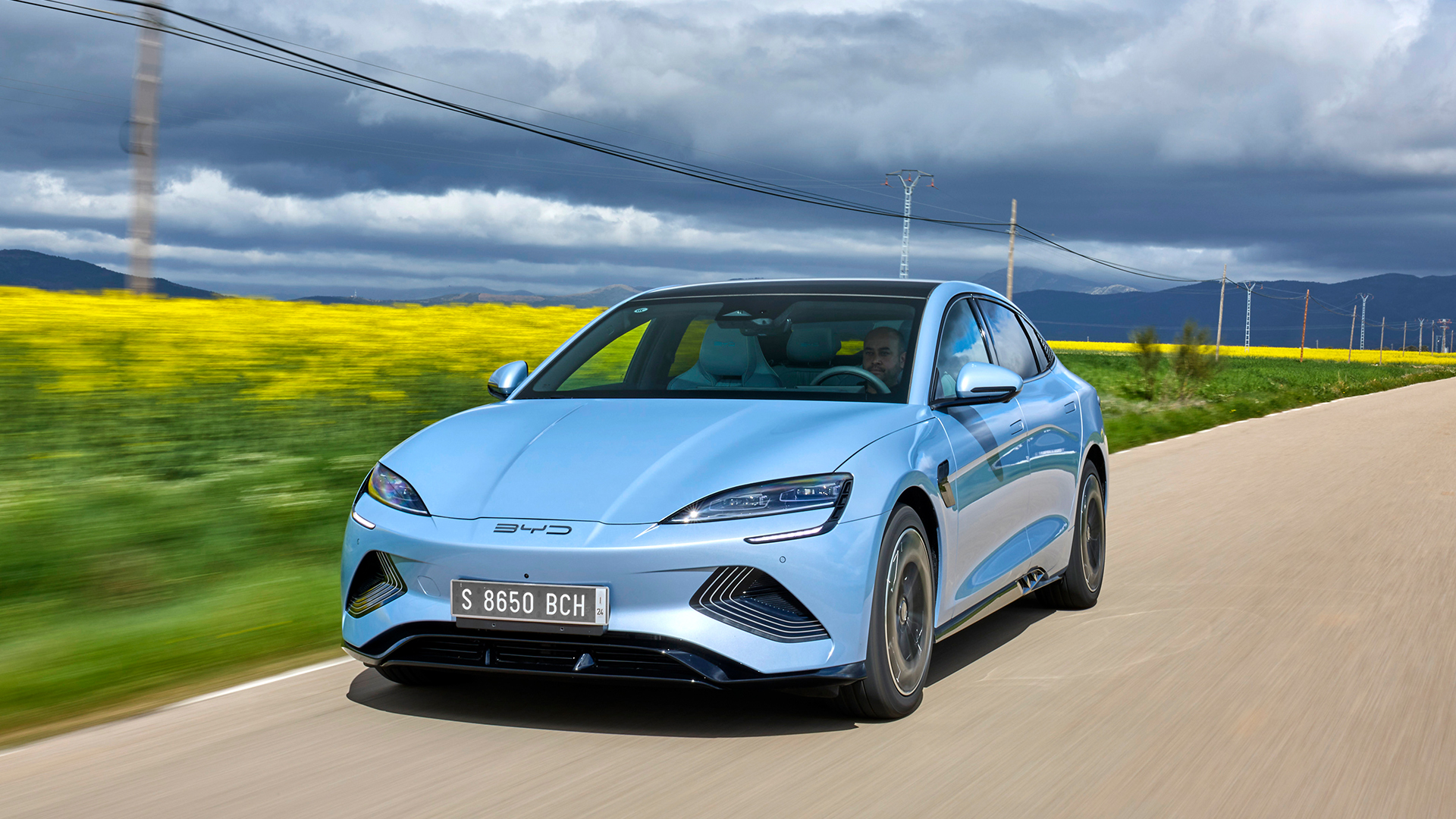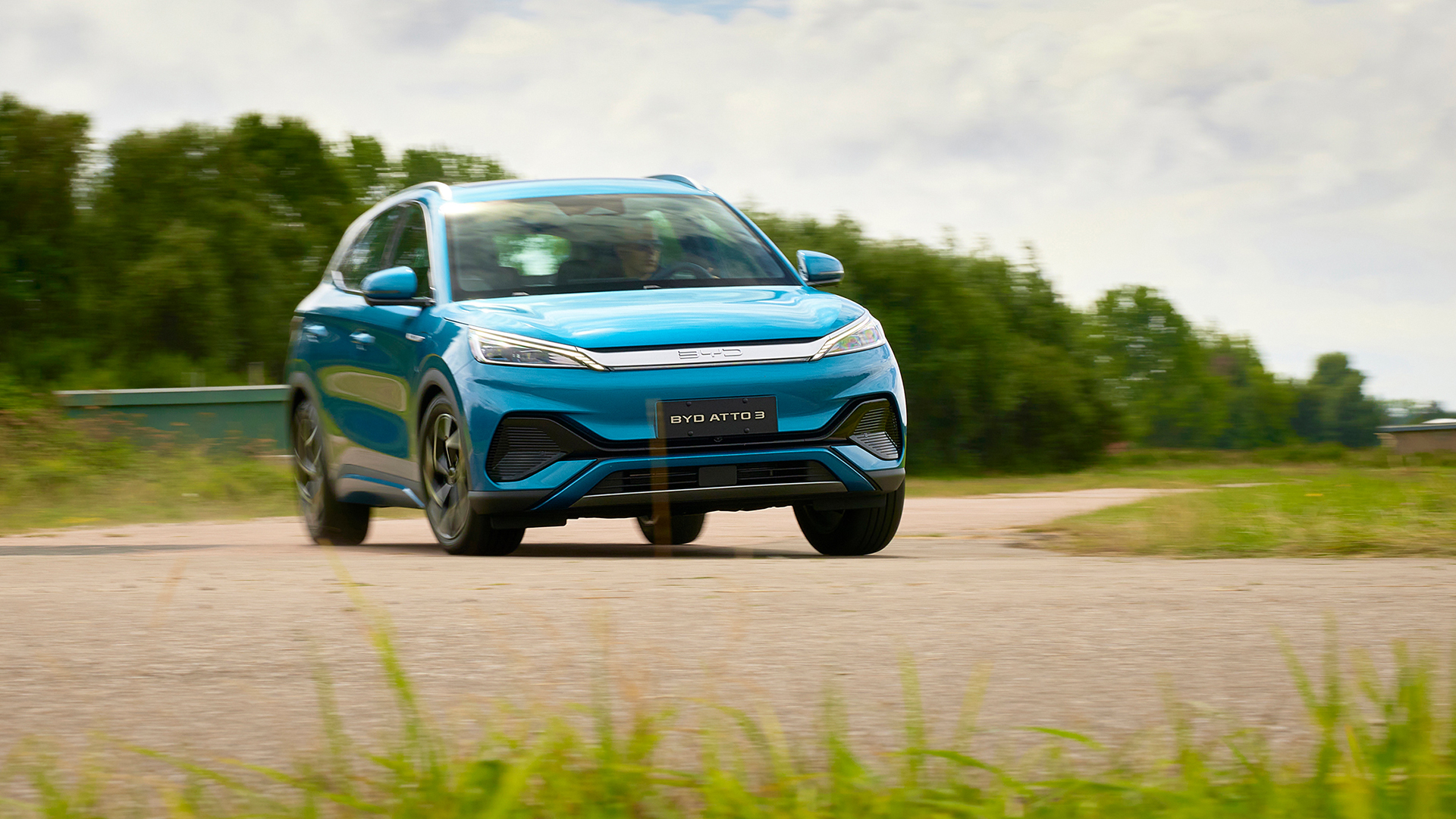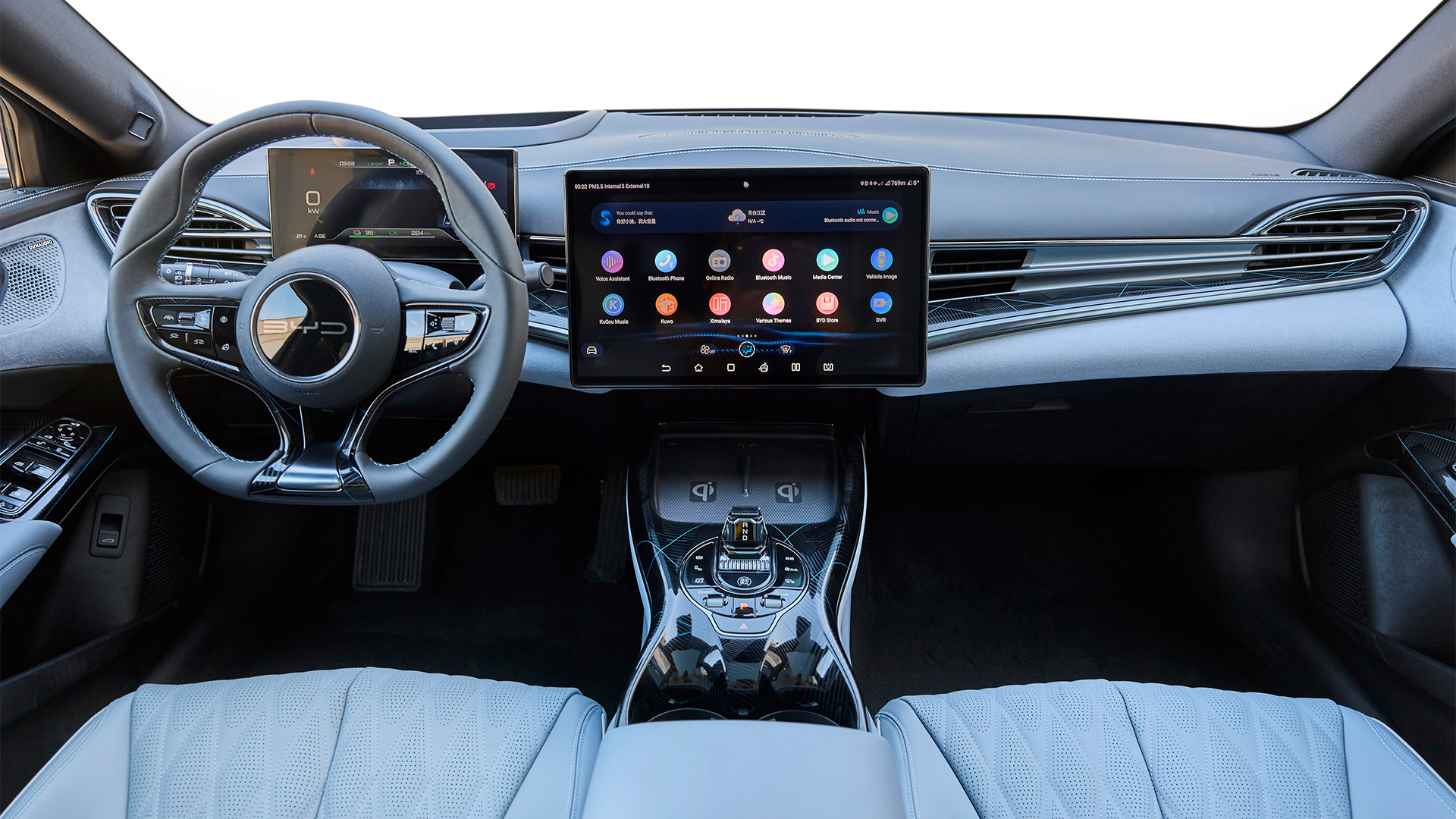Tesla is no longer the world's biggest EV maker – here's what you need to know about BYD
Chinese marque edges Tesla on EVs delivered

Sign up for breaking news, reviews, opinion, top tech deals, and more.
You are now subscribed
Your newsletter sign-up was successful
Tesla's long-running rivalry with BYD, a Chinese EV maker that has the backing of US investor Warren Buffett, has just reached boiling point – with BYD posting sales figures for the October to December 2023 period that have bested Tesla for the first time.
Elon Musk's Tesla, which delivered a record-breaking 484,507 EVs in Q4, was still outdone by its closest rival, which notched up 526,409 electric vehicles in the same period, according to Reuters.
The outspoken CEO set an ambitious target of delivering two million vehicles in 2023, but it was revealed that Tesla managed 1.8 million, while rival BYD sold over 3 million plug-in passenger vehicles in total.
That said, BYD also throws plug-in hybrids into that sales mix, actually selling just shy of 1.6 million pure EVs, meaning Tesla remains the overall champ in terms of global pure battery electric vehicle sales in 2023.
Another fact to consider is that the vast majority of BYD’s sales came from its domestic market, where it offers a variety of all-electric models that vastly undercut the Model 3 and Model Y on price – both of which are made in Tesla's Shanghai factory.
Is BYD set for global domination?

So what's the story with BYD? The company is owned by billionaire founder Wang Chuanfu and started life as a rechargeable battery manufacturer and supplier for the world’s mobile phone industry. It rapidly became a runaway success when it managed to cut the cost of its products using innovative manufacturing methods.
An acquisition of the then-failing Shaanxi Qinchuan Auto Company Limited (Qinchuan Auto) in 2003 signaled its intent to move into the automotive sector.
Sign up for breaking news, reviews, opinion, top tech deals, and more.
The road to car-making success wasn’t smooth, but an early focus on battery electric vehicles and plug-in hybrids (likely helped by grants and subsidies from the Chinese government) gave BYD the edge on many rivals and since then, it has rapidly gained a massive market share in China.
This is thanks to a number of affordable pure EV models, including its best-selling Song and Seagull nameplates, both of which are available for around $30,000/ £23,000 / AUS$45,000 in China.

As a result, many markets are looking to impose tariffs on Chinese imports, which is slowing BYD’s quest for global EV sales domination. The move has largely been made to protect local jobs and ensure legacy automakers aren’t priced out of the market.
A report from Bloomberg late last year stated: "Europe looks poised to join the US in slapping Chinese car imports with higher tariffs to shield thousands of manufacturing jobs.
"Other countries' EV markets are still in their infancy and aren’t nearly as lucrative [as China]. Management views the US as virtually off-limits due to the escalating trade tensions between Washington and Beijing."
US and European customer awareness of Chinese brands is still low, given the fact that very few models are actually on sale in those regions, but a number are starting to make inroads.
The likes of Nio, Zeekr and XPENG have had some success in Europe, while a spokesperson for BYD told CNN in 2023 that it was looking to double the number of dealer partners in Europe.
It also announced it would build a factory in Hungary to help it massively increase its European sales numbers.
You might also like

Leon has been navigating a world where automotive and tech collide for almost 20 years, reporting on everything from in-car entertainment to robotised manufacturing plants. Currently, EVs are the focus of his attentions, but give it a few years and it will be electric vertical take-off and landing craft. Outside of work hours, he can be found tinkering with distinctly analogue motorcycles, because electric motors are no replacement for an old Honda inline four.